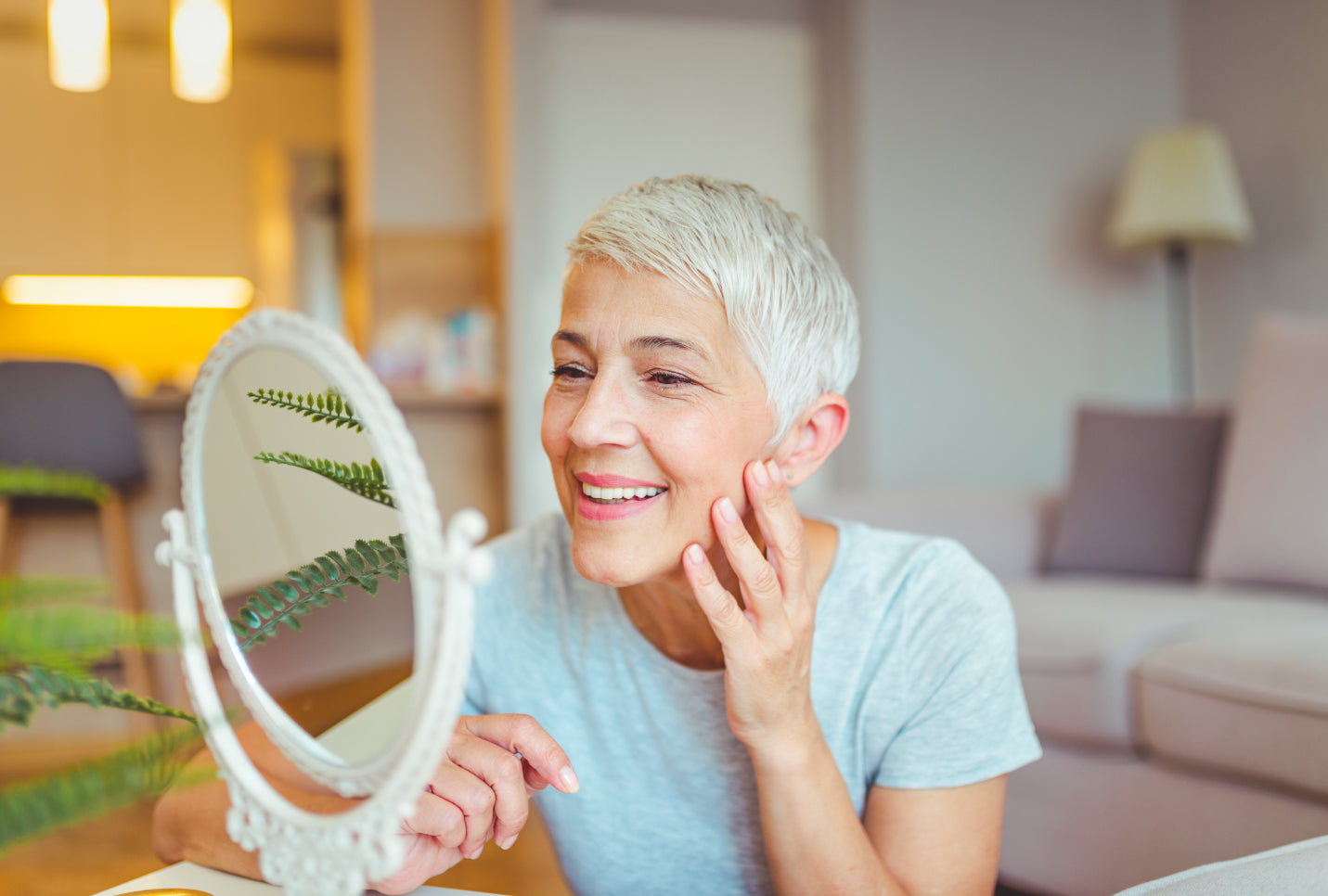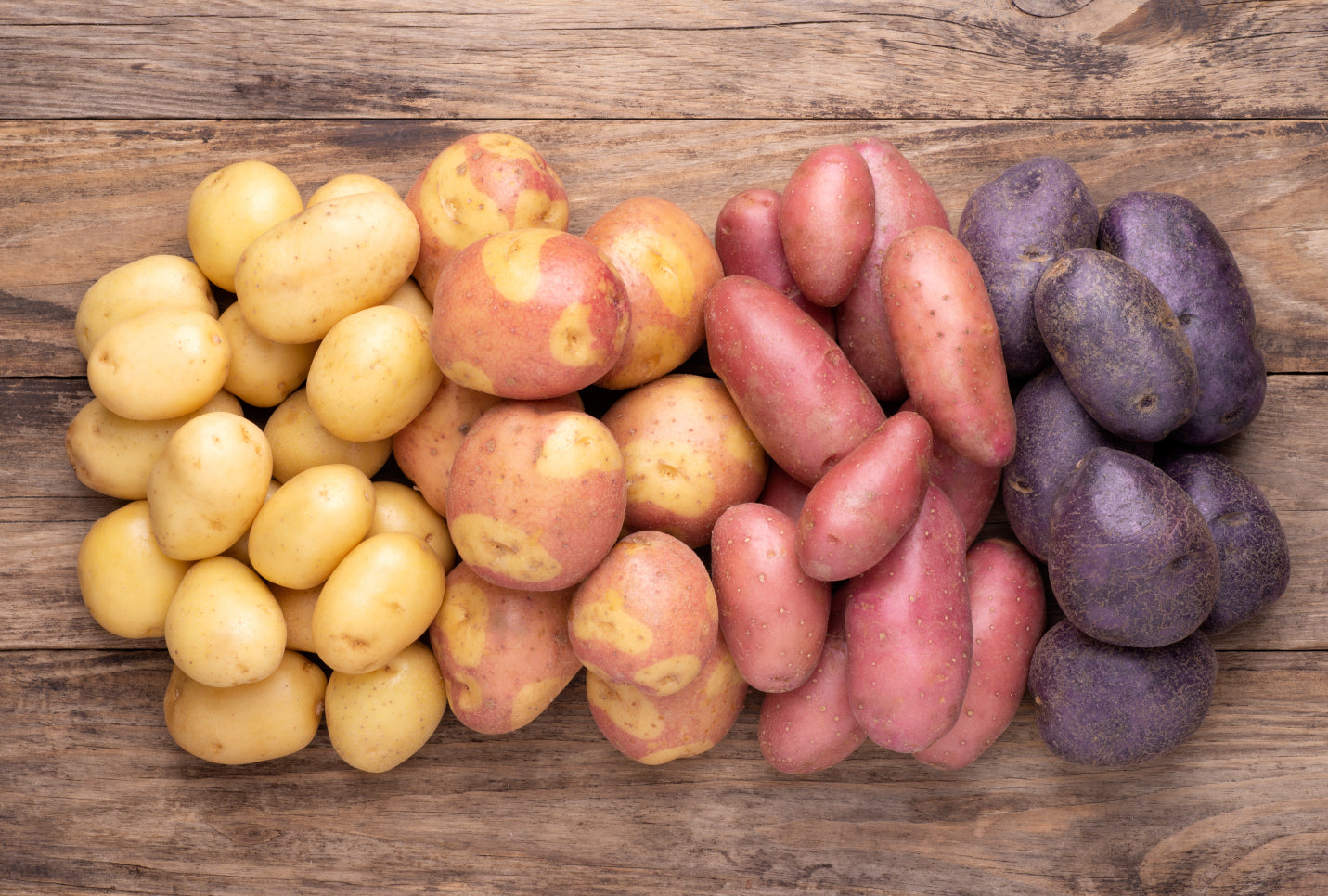
How To Look Younger: 10 Foods and Diets To Consider
Aging is a natural process that we all go through, but wouldn't it be fantastic if we could hold the aging just a bit and maintain our youthfulness for a while longer? The good news is that there are practical steps we can take to support healthy aging and keep those pesky signs of aging at bay.
In this comprehensive guide, we'll explore the fascinating world of aging, covering everything from nutrition and skincare to exercise and mental wellness. So, get ready to unlock the secrets of the fountain of youth as we delve into the key factors that can help you age gracefully and live a vibrant life.
What Is the Aging Process?
Before we delve into the realm of healthy aging, it is essential to grasp the intricacies of the aging process itself. Aging is a complex phenomenon that involves a series of biological changes that occur in our bodies over time.
One key aspect of aging is cellular senescence. Our cells have a limited capacity to replicate, and as they divide, they undergo a progressive loss of function.
This cellular senescence is influenced by various factors, including genetic predisposition and environmental stressors. As cells reach their replicative limit, they become less efficient at repairing damage and maintaining optimal function, leading to an overall decline in bodily processes.
Another crucial factor in the biological aging process is telomere shortening. Telomeres are protective caps at the ends of our chromosomes that prevent them from deteriorating or fusing with other chromosomes.
With each cell division, telomeres gradually shorten, eventually reaching a critical length where they can no longer provide sufficient protection to the chromosomes. Telomere shortening has been linked to the aging process and age-related diseases.
Additionally, the aging process involves the gradual decline of various bodily functions. Systems such as the cardiovascular, musculoskeletal, and immune systems experience changes that can impact their efficiency.
Hormonal levels also shift, leading to alterations in metabolism, energy levels, and overall vitality. These changes can contribute to the development of age-related conditions and a decrease in overall well-being.
While we can't completely halt or reverse aging, we can adopt lifestyle habits that slow it down and help us maintain our well-being as we age.
How Can Nutrition Impact the Aging Process?
Dietary nutrition plays a crucial role in supporting our overall health and well-being, including the aging process. The food we consume provides us with the necessary nutrients, energy, and building blocks for our bodies to function properly.
When it comes to aging, there are several key aspects of nutrition that can have a significant impact.
Essential Nutrients
Maintaining a well-balanced diet rich in essential nutrients is crucial for promoting healthy aging. Adequate intake of vitamins, minerals, and antioxidants can help support the immune system, combat oxidative stress, and support long-term wellness.
Additionally, consuming sufficient protein, healthy fats, and carbohydrates is important for maintaining healthy skin, muscles, and overall vitality.
Calorie Intake
Maintaining an appropriate calorie intake is essential for overall health and longevity. Consuming an excessive number of calories can contribute to weight gain, obesity, and various chronic diseases.
On the other hand, excessive calorie restriction may deprive the body of essential nutrients. Therefore, striking the right balance is key to supporting healthy aging.
The Role of Proteins and Amino Acids
Proteins and amino acids form the fundamental building blocks of our body's cells and tissues. Including high-quality sources of protein in our diet, such as lean meats, poultry, fish, legumes, and dairy products, can support muscle mass, encourage tissue repair, and foster graceful aging.
Amino acids, the individual components of proteins, play pivotal roles in various physiological processes and contribute to maintaining a youthful appearance.
The Importance of Antioxidants
Antioxidants, the unsung heroes in our quest for eternal youth, safeguard our cells against the damaging effects of free radicals. These harmful molecules can accelerate the aging process and contribute to various diseases.
By incorporating antioxidant-rich foods into our diet, such as vibrant fruits, vegetables, nuts, and seeds, we can neutralize free radicals and embark on a journey of healthy aging. Antioxidants offer a myriad of benefits, as they can support skin health, encourage cognitive well-being, and even protect the heart.
Supplements for Healthy Aging
In addition to obtaining nutrients from whole foods, certain supplements can complement a balanced diet and support healthy aging.
For example, collagensupplements have gained popularity for their potential role in encouraging skin elasticity and minimizing the appearance of wrinkles. Vitamin D and Vitamin Csupplements can also support immune function and provide antioxidant benefits, respectively.
It's important to note that supplements should not replace a healthy diet but can be used to complement it.
What Foods Can Help You Look (and Feel) Younger?
As you can see, nutrition plays a crucial part in both looking and feeling younger. Here are 10 different foods that can help you age gracefully.
1. Olive Oil
Olive oil, often hailed as the liquid gold of the Mediterranean, has been cherished for its numerous health benefits for centuries. Beyond its culinary uses, olive oil offers remarkable advantages when it comes to looking and feeling younger.
Its high content of monounsaturated fats, particularly oleic acid, has been linked to various health benefits, including reduced tension and a lower risk of heart disease. By incorporating olive oil into your diet, you provide your body with a powerful ally that can help address high blood pressure, support optimal heart health, and support a healthy aging process.
2. Red Meat
Red meat, when consumed in moderation and as part of a balanced diet, can offer valuable nutritional benefits that support healthy aging. It’s an excellent source of high-quality protein, providing essential amino acids necessary for tissue repair, muscle maintenance, and overall vitality.
Adequate protein intake becomes increasingly important for older adults. Muscle mass naturally declines with time, leading to a loss of strength and functionality. By incorporating lean cuts of red meat into your diet, you can help mitigate age-related muscle loss and maintain physical resilience.
3. Legumes
Legumes, encompassing a wide variety of beans, lentils, and chickpeas, are nutritional powerhouses that offer a multitude of health benefits. These plant-based gems are packed with fiber, plant-based protein, vitamins, minerals, and antioxidants, making them an excellent addition to any anti-aging diet.
4. Whole Grains
Whole grains, such as brown rice, quinoa, and whole wheat, are unrefined grains that retain their nutrient-rich bran and germ layers. They’re excellent sources of fiber, vitamins, minerals, and antioxidants.
Consuming whole grains has been linked to a lower risk of many chronic diseases. The fiber content of whole grains can also support digestive health, stabilize blood sugar levels, and may help maintain a healthy weight, which can positively impact the aging process.
5. Bone Broth
Bone broth has gained popularity for its potential health benefits, particularly for encouraging skin health and soothing joint discomfort. It’s made by simmering animal bones and connective tissues, such as chicken or beef bones, for an extended period.
The process extracts beneficial compounds like collagen, gelatin, amino acids, and minerals. Collagen, in particular, is a protein that can contribute to skin elasticity and help minimize the appearance of wrinkles and other blemishes associated with skin aging.
6. Avocados
Avocados, often hailed as a superfood, offer a wealth of nutrients that can contribute to healthy aging and promote a youthful appearance. These creamy fruits are rich in healthy monounsaturated fats, which not only provide a satisfying texture and flavor but can also support heart health by helping to maintain healthy cholesterol levels and blood pressure.
7. Green Tea
Green tea has long been recognized for its health benefits and is renowned for its anti-aging properties. It’s loaded with antioxidants called catechins, particularly epigallocatechin gallate (EGCG), which have potent tension-soothing effects.
8. Dark Chocolate
Indulging in a moderate amount of dark chocolate can bring pleasure to your taste buds while offering potential health benefits that contribute to healthy aging and good health in general.
Dark chocolate, particularly chocolate with a high cocoa content (70 percent or more), is rich in antioxidants called flavanols. These compounds have been shown to support blood flow, soothe tension, and protect the skin from UV damage.
9. Salmon
Salmon, a fatty fish rich in omega-3 fatty acids, offers numerous health benefits that can slow down the aging process and support overall well-being.
Omega-3 fatty acids, particularly eicosapentaenoic acid (EPA) and docosahexaenoic acid (DHA), have potent tension-soothing effects and are essential for heart health, brain function, and maintaining healthy skin.
10. Nuts
Nuts, such as almonds, walnuts, and pistachios, are packed with nutrients that support healthy aging. They’re rich in healthy fats, fiber, vitamins, minerals, and antioxidants. Including a variety of nuts in your diet can provide numerous health benefits while also contributing to a more youthful appearance.
What Else Can You Do To Look Younger?
In addition to incorporating more nutritional and anti-aging foods into your diet, there are several other lifestyle factors that can help you look and feel younger.
Get Regular Exercise
Engaging in regular physical activity is not only essential for maintaining a healthy weight but also plays a vital role in healthy aging.
Regular exercise supports cardiovascular health, helps maintain muscle mass, supports the gut microbiome, enhances bone density, and reduces the risk of chronic diseases. Plus, it can also help you get the recommended eight hours of sleep per night!
Use Retinol
Retinol, a derivative of vitamin A, has gained popularity in skincare products for its anti-aging properties. It has been shown to stimulate collagen production, reduce the appearance of wrinkles, and improve skin texture.
Wear Sunscreen
Protecting your skin from harmful UV radiation is crucial for maintaining a youthful appearance and preventing skin damage. Prolonged sun exposure can lead to premature aging, wrinkles, and age spots. It’s one of the main reasons why you should wear sunscreen and consider alternatives to sunbathing and tanning.
Try a New Makeup Look
Experimenting with different makeup techniques can be a fun and effective way to enhance your features and achieve a youthful glow. Opt for makeup products that nourish and protect your skin, such as those with added moisturizers and SPF.
The Bottom Line
The aging process is a natural part of life, but there are steps you can take to maintain a more youthful appearance. Nutrition plays a crucial role in supporting healthy aging, and incorporating foods like olive oil, red meat, whole grains, and bone broth can contribute to your overall well-being and skin health.
To enhance your skincare routine and support healthy skin cells, consider exploring Dr. Kellyann’s collagen products. These products are specifically formulated to nourish your skin and provide essential nutrients to maintain a youthful look.
Remember, while nutrition and skin care are important factors in looking younger, it's essential to prioritize overall wellness and mental health. Embrace a well-rounded approach to aging gracefully, and consult with healthcare professionals for personalized advice and guidance on your journey to healthy aging.
Sources:
Understanding the Dynamics of the Aging Process | NIH
Does Cellular Senescence Hold Secrets for Healthier Aging? | NIH
Calorie Counting Made Easy | Harvard Health
Antioxidants | The Nutrition Source | Harvard T.H. Chan School of Public Health
Dietary Fibre from Whole Grains and Their Benefits on Metabolic Health | PMC
Hass Avocado Composition and Potential Health Effects | PMC
Flavonoids–Food Sources and Health Benefits | NCBI Bookshelf
Omega-3 Fatty Acids & the Important Role They Play | Cleveland Clinic







